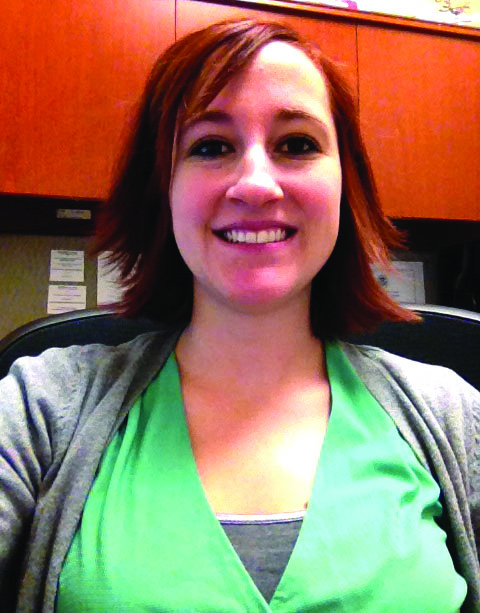The love of working with people
Liz Prettyman is spicing things up in the academic advising. Working mostly with international students and non-traditional students, Prettyman loves to interact with students and learn everyone’s different stories.

This archived article was written by: Ashley Stilson
Liz Prettyman is spicing things up in the academic advising. Working mostly with international students and non-traditional students, Prettyman loves to interact with students and learn everyone’s different stories.
Prettyman began as a student at College of Eastern Utah. She went to Utah Valley University to finish her degree in behavior science, directing it towards advising. “I had a fantastic advisor while I was here as a student….I had a lot of friends who didn’t go to academic advisers, and they had some difficulties. And I thought, ‘wow, if you would’ve done this, it would’ve been so much easier.’”
Besides academic advising, she also works with international students. Prettyman has never worked with international students before. “That’s definitely new. I just finished my training with that…It’s a lot more data entry than you would think it is. I mean it makes sense you have to track people, but it is a lot of laws and regulations.” One of the unique problems she encounters with worldwide students is the language barriers. Some students struggle with English, and some don’t it. It’s an individual thing, Prettyman believes.
The paperwork and research involved with academic advising is enjoyable, but if Prettyman could, she would work with fewer students. “I knew what they were going through,” Prettyman mentions when discussing her previous job working with only 60 students instead of the entire campus. “I knew what their problems were. It made it a lot easier to work with them. We just don’t have enough advisers for that to work right now. But I enjoy that part more. Not necessarily counseling, but helping them in any aspect.”
“It’s interesting to see how everybody’s got here, what their story is and why they’re here,” Prettyman says about her favorite part of her job. “I think just talking to people. Learning that they’re different, their different stories [because] everybody’s different.”
Students often come to the academic office in need of emotional counseling. “Usually this is the place that people come first,” Prettyman says. “We refer to the counselors. But a lot of times we hear about people’s problems and things because they don’t know who to talk to….We’re not always the right person to talk to, but we can usually figure out who they need to talk to.”
“We have a lot of students here who are non-traditional students who have a lot of problems with scheduling, with babysitters.” Prettyman remarks about her every day in the office. “They think they’ve got it worked out and then it doesn’t work…That comes up all the time. It’s always interesting.” Prettyman is also an elementary education advisor and works with students studying in that field.
If money wasn’t an issue, Prettyman said, “I would still work. I would do this, but I would have summers off.” She loves living here where her son grows up in a safe neighborhood and living by family. “Ideally, I would still do [counseling], but I would get off the same time my son got out of school and I would get summers off. But I wouldn’t pick another career.”




